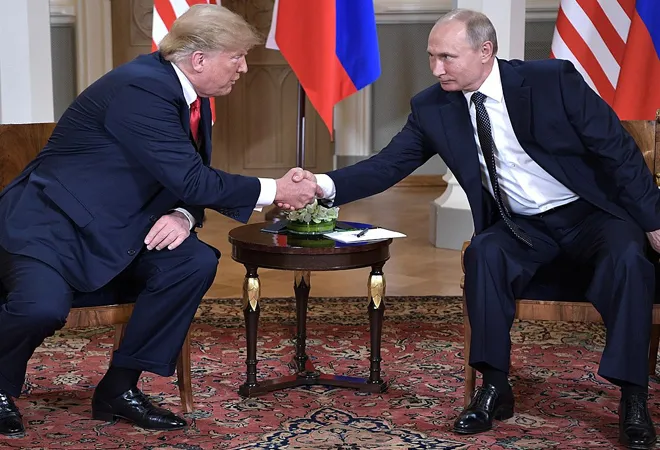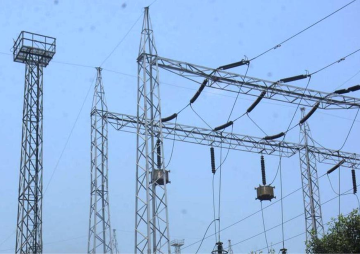
The Helsinki summit on 16 July between Donald Trump and Vladimir Putin was, for many outside observers, a good step towards reducing tensions between the two countries. However, given the internal situation in the US regarding Russian interference in the previous presidential election and Robert Mueller’s ongoing
investigation into the same, including any possible collusion between Donald Trump’s campaign and the Russian government, much of the American coverage of the meeting has been understandably less than sympathetic. The timing of the summit, as well as some of President Trump’s statements—some of which he was forced to walk back—were of particular focus. However, the view of the summit was decidedly different in Russia.
This difference can of course be explained by the differing domestic and international situations the two countries find themselves in. For Trump, the insinuation that he has been compromised by Russia has stuck, and the ongoing Mueller investigation into these ties has produced several indictments. Leaving aside the question of collusion, there remains the belief that President Trump would not continue US policy and pursue a hard line and adequately ‘punish’ Russia, given his
statements. This in part led the US Congress’ to pass the Countering America’s Adversaries Through Sanctions Act (CAATSA) with a veto-proof majority.
Russia meanwhile has been facing unilateral sanctions from both the US and EU, and a key plank of its outreach to the West has been an effort to reduce these sanctions.
As such, any attempt by an American politician, not least the president himself, to take a softer stance against Russia is welcome. This was near impossible during the last couple of years of Barack Obama’s presidency, as he presided over a particularly tense period in the relationship. A one-on-one meeting would have achieved very little, because both sides were held relatively uncompromising and incompatible views, and the administration was not too keen to give Russia’s position any credibility. Trump’s presidency and his statements therefore signalled a de facto reset, with the American president unusually willing to accept his own country’s role in the souring of relations. Last week’s meeting was a result of this change, and so was significant for both countries. Russia especially—its clear delineation of its interests and possible areas of mutual cooperation signalled that it had more to gain.
The Russian reaction encompassed a range of views, and the summit was largely viewed as either a success, or at worst inconsequential.
State-owned publications, reflecting the view of the government, naturally took a sympathetic stance towards President Trump’s efforts, and the headlines tended to focus on his consistent attempts to improve relations with Russia. He was seen as being genuinely willing to treat Russia as an equal partner. Possible areas of cooperation, where Russia would be critical for the United States’ interests, such as
North Korea and
Syria, were highlighted. At times the outcomes of the meeting were
overplayed. The overall assessment of the summit from state-owned publications was
generally positive. Of particular focus were Trump’s
claims that some
domestic actors in America, including certain
media outlets, were an obstacle in the way of his efforts to ‘get along’ with Russia. A major talking point was the negative attitudes held by politicians in the United States that hampered efforts to improve relations between the two countries. They were seen more as an obstacle to be overcome rather than a serious consideration.
There was a rare synergy between the complaints of irrational ‘Russophobia’ in the West, and the attacks against the media by President Trump.
Other media outlets were a little more sceptical—not so much of the summit itself but what it achieved. There was general
agreement that it was a public relations victory for the Russian president. What this means for the domestic audience in Russia is clear, as there
exists a sizeable willingness to improve ties with the US. What is still unclear is what sort of reaction this would provoke from the foreign policy establishment in the US. While agreeing with the assessment of the impact of domestic pressures on the American president, they acknowledged that it was a valid consideration and part of the realities of the domestic political process, and could lead to an
abandoning of future talks if the pressure mounts. They were
doubtful about the outcome, and the sense one gets is that while the resumption of dialogue at these levels was seen as a net positive, outside of some areas of convergence the prospects of achieving lasting change is
unlikely. A joint statement was expected by did not ultimately materialize, and even for areas of mutual cooperation it is difficult to say if anything will, barring perhaps arms control agreements.
What is clear is that the facts on the ground have not changed. The US Congress especially has asserted its powers in the foreign policy sphere to further sanction Russia, bypassing executive orders that can be revoked by the president.
However much good faith President Trump demonstrates towards Russia, the larger foreign policy establishment and the president’s advisers are unlikely to compromise on American positions on Crimea, Ukraine, Syria and other issues. Russia’s reaction to the summit might mean that they may be more flexible with at least the latter two. While they may not retaliate against the President for fear of losing support in the upcoming mid-term elections, they could impose even harsher sanctions on Russia—something which has already happened with the CAATSA act—especially if they expect any cyber-meddling in future elections. The Russian side seems to understand this, and
already looks hesitant for a second meeting, citing the political atmosphere. The Helsinki summit was ultimately a superficial victory for the Kremlin, but it was not the breakthrough some were hoping for.
The views expressed above belong to the author(s). ORF research and analyses now available on Telegram! Click here to access our curated content — blogs, longforms and interviews.



 The Helsinki summit on 16 July between Donald Trump and Vladimir Putin was, for many outside observers, a good step towards reducing tensions between the two countries. However, given the internal situation in the US regarding Russian interference in the previous presidential election and Robert Mueller’s ongoing
The Helsinki summit on 16 July between Donald Trump and Vladimir Putin was, for many outside observers, a good step towards reducing tensions between the two countries. However, given the internal situation in the US regarding Russian interference in the previous presidential election and Robert Mueller’s ongoing  PREV
PREV

